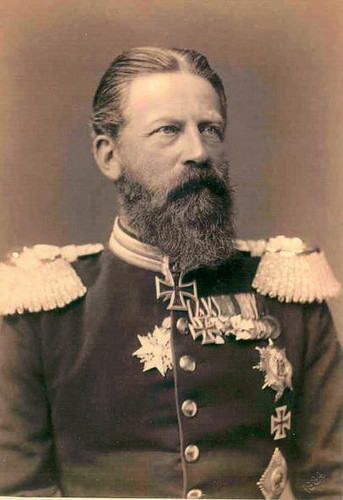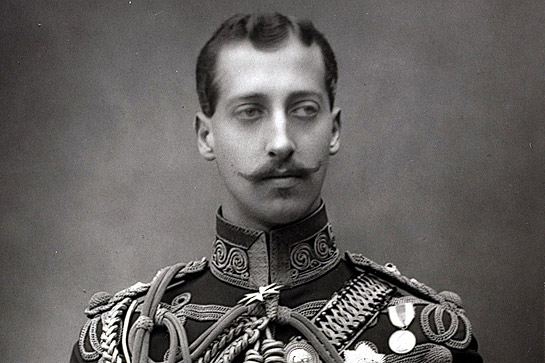Prologue

By Major Crimson
Prologue: Where the Road Leads
Extract from: Shaping the World: The Ideologies of the 20th Century
By: Arthur E. Johnson
On the 19th of May 1919, five thousand miles apart, two yet-to-be-important men made two yet-to-be-important speeches.
On the stairs of the Bodleian Library in East Oxford, a tall, blonde stood high and proud; surrounded by large banners, all in red and purple, looking out over a crowd of some two thousand students, professors, politicians, reporters and passers by. The speaker was handsome, eloquent and smooth. Straightening out his red tie and stepping forward, he leaned into the audience and breathed in deeply. He stood confident at the podium, undeniably relaxed he stood forward, one hand gesturing towards the audience. Charisma oozed from him, as it always did, and the future PM gave one of his most famous addresses.
“Ladies and Gentleman, this great meeting is gathered here this afternoon to discuss and explain the merits of our great movement. If you think the present system of things then there is no need for our new and dynamic ideas to take flower on this green and pleasant land, if you think that the Liberals and the Tories can simply exchange the reigns of government forever more and this will bring you liberty than my speech today should be disregarded as empty, as unnecessary.”
Behind the speaker, a student in black tie and suit shuffled nervously. Ossie had helped write the speech and it had the potential to launch him forward in the party but he couldn't help but worry. The future Chancellor made his first outing here and stroked his neatly trimmed, RAF-style moustache with his thumb.
"However my friends, I dream I a little higher than that, I aim a little higher than that. Our magnificent country, our wonderful Empire; they deserve more than second best. So I come to you today with a new future; a future built by and for us, the people of the British Empire! No more exploitation from on high and no more rabble rousing from below; Now I know some of you think our movement a joke.”
In the crowd, a boy of 14 looked up at the great podium and found himself oddly inspired. Eric had never given much heed to politics before; it bored him to death when father droned on and on about it, but he found himself oddly drawn to the man on the platform. Although he did not yet know it, the future Home Secretary would become the Party’s first youth member later that day.
“To some of you we are traitors,” the speaker continued, “to others fools. What we are, at heart, is patriots. What we are, is fathers, sons, brothers. We care for our country, we care for our people. What I speak of is not a contradiction as some of you think it. We promise a future, for the boy in Manchester and the girl in Bangalore. We speak of justice, for the craftsman in London and the farmer in Queensland. We offer advancement, liberty, progress; for the mother in Toronto and for the grandmother in Glasgow.”
He took a deep breath. “Two words. Imperial Socialism.”
He paused for a moment and, as he would later record in his diary, was confused that instead of the laughter he had become used to, his speech was met with applause. This was the moment that the "Great Three" of British politics were first in the same place. This was the moment that Charles Chaplin and the movement he had led for nearly a decade went from the comic relief of British politics to its driving force.
Meanwhile, in the dusty streets of Salt Lake City, the Reverend Roosevelt roused both the Mormon and the Gentile people of the city to his cause and his slow march up the ladder of American politics began. His flags had red, of course, but none of the Oxonian purple. Instead, red white and blue flew from every window in the street, it billowed out from around Roosevelt, it embraced the scene and dominated the town square. Behind the speaker a great cross stood, ten feet tall and present at all his rallies. The Reverend stood in unbowed by the great hunk of wood behind him, confident and steely faced, he began to dictate.
“My good Christian men and women, of all colours, of all great and godly creeds, I thank you for your warm welcome to your warm town. A spectre is haunting these United States, the spectre of Socialism, (Yes, he really did steal that from the Communist Manifesto) of Heathenry, of discord and disruption.”
The Reverend gripped the podium but stood tall and imposing, his black robes seemed to rise high above the crowd. Authority resonated in every syllable.
“Subversive elements have infiltrated our great nation, stood in the way of the American people. They have stood in the way of our faith, of our purity.”
The ‘R’ sound in purity, as always with the great Franklin R, was rolled beyond any normal manner of speech.
“They have stood not out of a genuine belief in ‘progress’, nor out of any true political convictions but out of corruption! Corruption of the soul, with alcohol. Corruption of the hand, with money. Corruption of the mind, with socialism. Corruption of the heart, with liberalism. I speak now to you, as good christians from whatever your denomination, whoever your pastor; if you are godly men then stand now. Stand for Christ, stand for Colombia, stand for justice!”
As with Chaplin it was from here that, for the good Reverend and his movement, the snowball began to roll.
---
From: aej/mag/oxf/uni/com
To: mcc/war/cam/uni/com
Dear Marie,
Hey honey, I hope Uni is going well, I know its Green Week but try not to get too hammered with the First Years OK?
Its early days and I’m sure you’ve got more than enough work but I’ve attached the first copy of my dissertation’s intro, I can’t think of where to take it with Roosevelt and the CPP but mostly I need talk about the build up to this point, the Short and Long Wars, the Lib-Imp coalition, ect ect ects. I know your work is more Sociology but it’d still help to have some input.
Oh next time you’re in Oxford, remind me there’s a new Shimi place on Magdalen Street, I’ve got to take you!
Love you,
Artie
SENT FROM: ACUWEB OX









